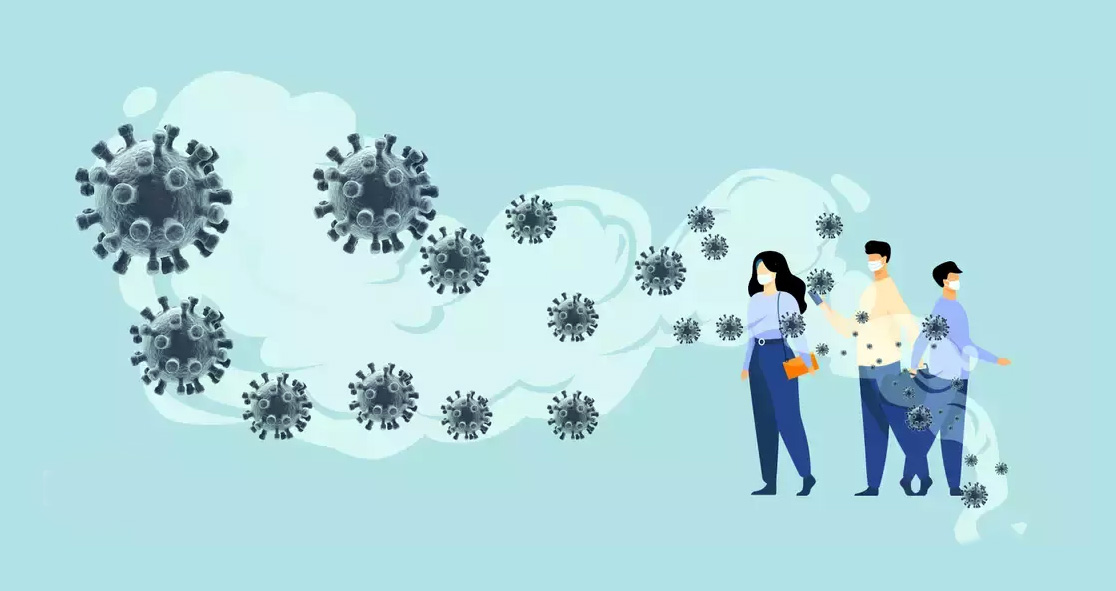A new study by the researchers of the University of Maryland School of Public Health has shown that COVID-19 variants keep getting better at becoming air-borne, according to Science Daily.
The study, published in the journal Clinical Infectious Disease, found that people infected with the Alpha variant breathe 43 to 100 times more virus into the air than people infected with the original strain.
The authors also found that face masks reduced the amount of virus that gets into the air by around 50%.
Researcher Dr. Don Milton said, “Our latest study provides further evidence of the importance of airborne transmission. We know that the Delta variant circulating now is even more contagious than the Alpha variant.”
“Our research indicates that the variants just keep getting better at traveling through the air,” he added, “so we must provide better ventilation and wear tight-fitting masks, in addition to vaccination, to help stop the spread of the virus.”
The team found that the amount of virus in the air from Alpha variant infections was 18 times more than what could be explained by the increased amounts of virus in nasal swabs and saliva, according to Science Daily.
Lead author Jianyu Lai said, “We already knew that virus in saliva and nasal swabs was increased in Alpha variant infections. Virus from the nose and mouth might be transmitted by sprays of large droplets up close to an infected person. But, our study shows that the virus in exhaled aerosols is increasing even more.”
The findings suggest that the coronavirus is evolving and mutating to a level where it keeps better at becoming more contagious.
The researchers also found that face coverings reduced virus-containing particles in the air by nearly 50%. However, a loose-fitting cloth and surgical mask did not stop the infectious virus from getting into the air.
Co-author Dr. Jennifer German said, “The take-home messages from this paper are that the coronavirus can be in your exhaled breath, is getting better at being in your exhaled breath, and using a mask reduces the chance of you breathing it on others.”
The authors explained that we need a layered approach to control measures, such as improved ventilation, increased filtration, UV air sanitation, and tight-fitting masks, and of course, vaccination, to protect people from highly contagious variants. The article first appeared in Science Daily.























